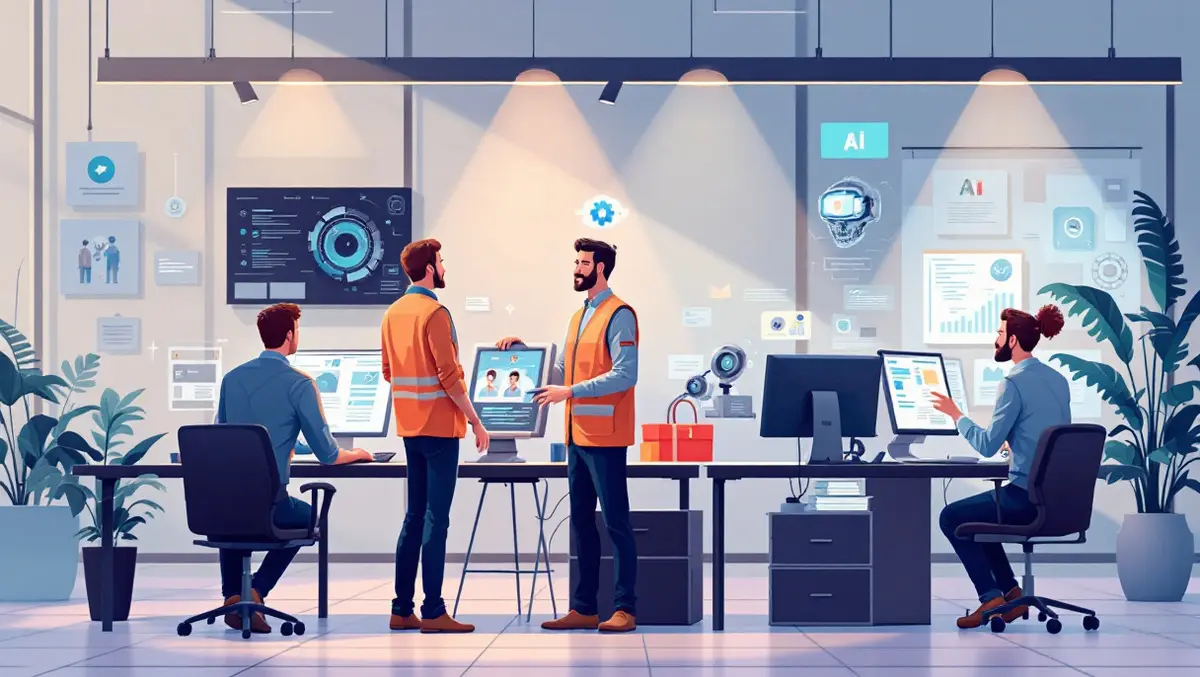
Australian leaders embrace AI agents to boost workplace output
Microsoft's latest Work Trend Index indicates the emergence of the "Frontier Firm" in Australia, where human workers increasingly collaborate with artificial intelligence agents and the role of traditional employees is undergoing significant change.
The Work Trend Index draws its insights from a survey of 31,000 people in 31 countries, including 1,000 respondents from Australia, and analysis of labour trends and digital activity within Microsoft 365. The report highlights three central themes: growing demand for productivity, an evolving relationship between humans and AI agents, and the need to prepare for leadership in a hybrid workforce.
Australian business leaders are under pressure to increase productivity, with 47% saying it must improve, while 79% of both employees and leaders report a lack of sufficient time or energy to complete their work. Workplace interruptions are frequent, with employees reportedly being interrupted every two minutes by meetings, emails, or notifications.
One aspect examined by the report is the adoption of AI. The findings suggest that companies classified as Frontier Firms, which deploy AI for not just automating simple tasks but also for decision-making roles, outperform their peers. Globally, 71% of Frontier Firm workers are twice as likely to describe their company as thriving, compared to 37% on average, and more than twice as likely to say they can manage increased workloads.
According to the report, 75% of Australian business leaders are confident they will use digital agents to expand their workforce capacity within the next 12 to 18 months.
Lucy Debono, Modern Work Business Director at Microsoft Australia and New Zealand, believes that now is the time for organisations to consider how AI agents can support their staff. She commented, "Most businesses are already using AI to automate tasks, but the next phase will see agents join teams as 'digital colleagues,' taking on specific tasks such as building go-to-market plans or internal communications strategies under human supervision. These agents will help boost employee skills and free them to do more meaningful work and reshape how they work. The final step will be seeing agents run entire business processes and workflows. But the critical thing will be getting the balance right, ensuring organisations are using enough AI agents to maximise productivity, without overwhelming human employees' capacity to oversee their decisions and provide them with the necessary direction."
The introduction of agentic AI raises questions about the future composition of teams and the ongoing need for human expertise. In Australia, 40% of leaders report using AI agents to automate entire workstreams or business processes. While 37% of leaders are considering reducing headcount as AI adoption accelerates, 70% say they are looking to hire new AI-focused roles in the coming year.
Debono addressed a misunderstanding within the business community regarding the replacement of people with AI. She said, "Replacing people with AI might seem efficient in the short term, but it erodes resilience and innovation. Leaders must stop seeing this as a binary choice. It's not AI or people – it's both. The fact that the majority of Australian leaders intend to hire AI-focused roles in the new year is a clear sign that AI is transforming work, not eliminating it."
She went on to add, "And what we're seeing is that the reasons employees turn to AI over a colleague is because it's available 24/7, it can do a task faster, and it helps with creative ideas – but it's going to take a long time before it can match the judgement of a human being. Not every business function will change at the same pace, or to the same degree."
Business leaders in Australia anticipate significant changes in workforce composition within five years. They expect teams to increasingly redesign processes with AI, build multi-agent systems to automate complex tasks, and take responsibility for training and managing AI agents. Microsoft refers to this as the rise of the "agent boss", where every employee directs both human and digital colleagues.
Yet, there is a disconnect between leaders and employees in their understanding of agentic AI. While 71% of Australian leaders say they are familiar with AI agents, only 31% of employees say the same, a gap that is wider than the global average. Debono commented, "AI agents are about to become part of every team and every workflow. But if only leaders understand how to use them, we're setting up a two-speed workforce. Closing that gap is not a tech rollout issue: it's a leadership challenge, and a massive opportunity to support Aussie workers in their confidence and capability to leverage agentic AI."
The Work Trend Index makes several recommendations for organisations aiming to transition to Frontier Firms. First, it suggests hiring digital agents as employees, giving them onboarding, ownership responsibilities, and performance metrics. Second, it recommends organisations set a human-agent ratio to maintain human interaction where necessary. Finally, the report urges organisations to move beyond pilot projects to broad adoption and activation at all levels, particularly in high-impact areas such as operations, customer service, or finance.
Debono stated, "We're not in an AI pilot phase anymore – as the report says, real change requires broad adoption and activation at every level of the organisation. This is our moment to build an inclusive AI economy. If Australia moves fast to get the foundations right now, it will be setting itself up for a much more productive future, and one where employees can also enjoy having more time to focus on valuable work and less on routine decision-making."
In parallel with the research findings, Microsoft announced updates to its Copilot for Microsoft 365 platform, introducing new features such as the M365 Copilot App with integrated chat history and conversation prompts, tools for simplified content creation, enhanced semantic search capabilities, a unified Copilot Notebooks workspace, as well as Researcher and Analyst Agents to support strategy and data analysis tasks for employees.


